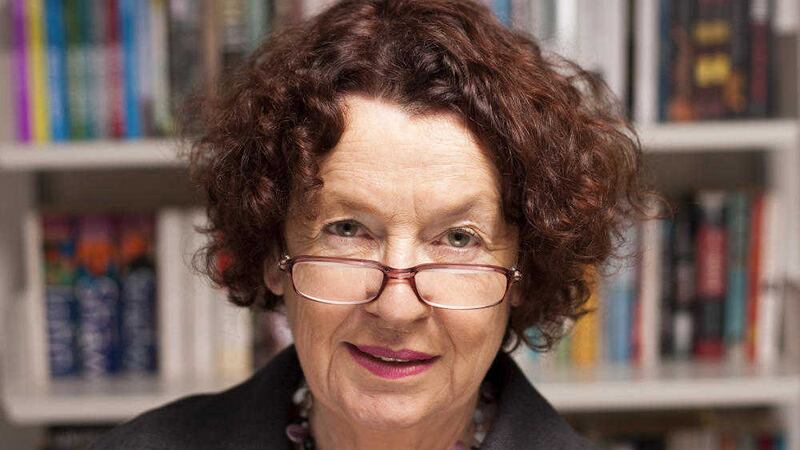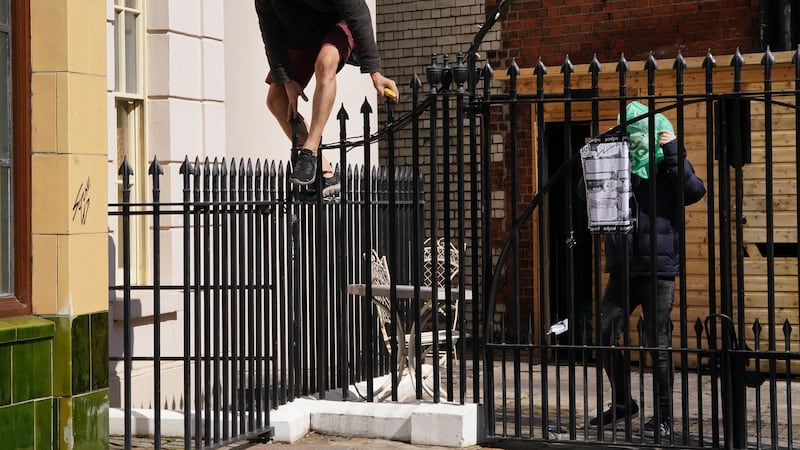WHEN RUTH Dudley Edwards was writing her new book, an in-depth insight into the seven leaders of the 1916 Rising, she had one key aim.
“I wanted to make it readable,” she says. “I do write crime fiction as well, so I have that desire to tell a good story. There are far too many dull books out there.”
She has certainly succeeded. The Seven: The Lives and Legacies of the Founding Fathers of the Irish Republic is a fascinating page-turner that paints portraits of Thomas J Clarke, Sean Mac Diarmada, Eamonn Ceannt, Patrick Pearse, Thomas MacDonough, Joseph Plunkett and James Connolly.
It’s easy to see why novelist Colm Toibin is a fan, while fellow writer and commentator Kevin Myers has even described it as “a masterpiece”.
“The folly, the courage and the tragedy of the Easter Rebellion have never before been presented with such clarity and brilliance,” wrote Myers. “At times it reads like the work of fiction that it is not.”
On Easter Sunday, April 23 1916, the seven men – as members of the Irish Republican Brotherhood’s military council - put their names to the Proclamation of the Irish Republic, declaring that they were the provisional government of Ireland free from British rule.
Effectively signing their own death warrants, the seven have been eulogized and used as political weapons ever since.
Now, a century on, Dudley Edwards looks at how the seven men’s lives converged, how they came to espouse violence and what vision they actually had for their country.
“One of the things that comes out is that I don’t think they ever had a conversation about what kind of Ireland they wanted,” says the author.
“The seven are an amazing collection of characters – and also a strange collection of people.
“There are lots of books about 1916 now and what drove me to write this was the realisation that these seven kind of only have walk-on parts in each other’s biographies but you never get a sense of them as a group.
“They’ve been regarded as saints and heroes, so I felt the urge to see how they got on together and who called who into the revolution and how they influenced each other. It was pretty absorbing.”
She started with the oldest of the group, Thomas J Clarke.
“I stick with him until he’s in his fifties, which is when he meets Mac Diarmada. He then he pulls in another one, and so on. Each time I stop and do the back-story for each of them, I pull the stories together and see how they react to each other.”
Dudley Edwards has long lived in England but was born in Dublin in 1944 and grew up there.
She writes about being fascinated as a child by a picture her grandmother had over her fireplace called The Last Stand, a portrait of a scene of carnage in the General Post Office in the last hours of the Easter Rising that features five of the seven men.
She recalls her grandmother talking about meeting 'Mrs Tom Clarke’ and the young Dudley Edwards gradually came to realise that “the men I had been told were martyrs were actually real people with living relatives”.
Her grandmother was – to put it politely – a complex character.
“I can still see that fireplace and that picture. And the picture my grandmother had of Hitler as well,” she says.
“She wasn’t stupid. So I didn’t mind her being a traditional Irish patriot, but I couldn’t believe that she could embrace fascism.
“She was a suffragette. She was a Catholic activist and became a bit of a gunrunner and then a mad Irish patriot and then a fascist. She leaped from one ideology to another.”
She writes in the book that her parents talked openly about civil war fatalities, political division, the Irishmen in the British Army and that, “unlike the IRA and fellow-travellers like my fascist grandmother, [my parents] had also been unequivocally anti-Nazi”.
Her book sets out to `explore and explain’ rather than `condemn or disparage’ the events of 1916.
“Many deplore the loss of life and national trauma caused by the events of Easter 1916, the ensuing War of Independence and the Civil War and the inspiration they gave to subsequent generations to kill and die for Ireland,” writes Dudley Edwards.
She talks about the idea of “worshipping unexamined heroes” and recalls “reverential references” to the Easter Rising when she was at primary school in Dublin.
“We were told nothing about the casualties of 1916,” she writes. “The only dead who mattered were those executed by the British. If Northern Ireland was ever mentioned, it was as a bit of Ireland that was ours, and we would get back some day.”
She writes that she found it “significant how fairly the National Library in Dublin, in its 1916 Exhibition, pointed out that initially the insurrection had been widely condemned as `foolhardy in the extreme and downright criminal’.”
The Seven is published almost 40 years after Dudley Edwards wrote a biography of Pearse – a book she says was “denounced by IRA apologists as revisionist”.
She says the 1977 book is “like a virus – or something that never goes away”.
“I wrote it in a kind of innocence. I’d been living in England for seven years. I’d always been interested in Pearse and somebody asked me to write the book and I did.
“Then the world fell down around my head and people were calling me a revisionist. I didn’t know what a revisionist was; neither did most of the people who used that word as an insult. So I got a bad name in all sorts of quarters, but you get used to all that.
“Pearse was an extraordinary man and coming back to him now after all this time, he’s even more extraordinary than I remembered, she says.
In The Seven, Dudley Edwards writes about a side chapel in a Galway cathedral where, in the 1960s, an image of Christ was flanked by mosaic representations of Pearse and John F Kennedy praying to him.
“It is hilarious; you couldn’t make that up,” she laughs now.
She says she was fascinated by Joseph Plunkett’s story while writing the book.
“He was hugely intelligent with an extraordinary range of intellectual interests. He was dying of consumption, so he would have been dead within a week anyway. And he had a completely lunatic family.
“Many of them had conflicted identities. You have Clarke’s father being a British soldier and a lot of them were policeman’s sons or soldier’s sons.”
She writes that, “those who had written and signed the Proclamation were unelected and claimed their justification from God and `the dead generations’ rather than a living electorate”.
“I just want people to know what our history is and to be able to have access to it in a comprehensible sort of way and make up their own minds,” she says.
“One of the reasons I wrote the book is to show that they [the seven] have left a legacy that entitles anybody to decide that they’ve got a right to start a revolution.”
The Seven will be published by Oneworld Publications on March 22. Ruth Dudley Edwards is in Belfast next week at the Imagine! festival (imaginebelfast.com), reading from The Seven in the Ulster Hall on Wednesday at 1pm and at the Linen Hall Library on Friday March 18 at 6pm for the talk `1916: A Political Reflection 100 Years On’ as part of a panel including Irish News editor Noel Doran, Dr Marie Coleman, Dr Philip O’Sullivan, Dr Michael Doorley, Prof Graham Walker and Philip Orr.








